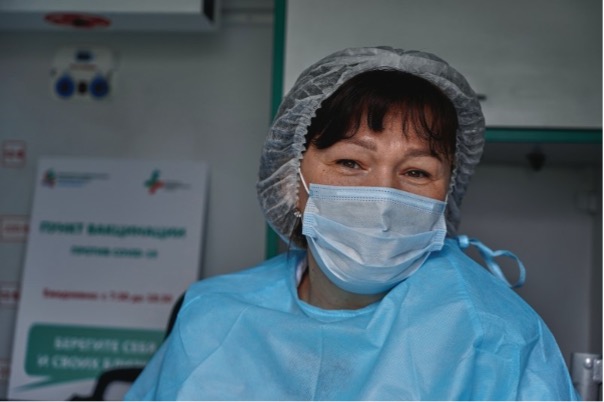
Job security can often be a challenge that faces many professions - particularly as new and emerging technologies challenge the existing frameworks of office roles. However, one discipline experiencing unprecedented growth is the demand for medical professionals such as physicians and nurses.
Recent data published by the U.S. Bureau of Labour Statistics (BLS) found that nursing practitioners, in particular, are expected to be the fastest-growing occupation in the U.S. between now and 2031. Completing qualifications such as nurse practitioner programmes in Texas can provide new opportunities in a highly regarded field.
In this article, we'll explore some challenges facing healthcare employers, from the challenges of an ageing population and a retiring workforce. Then, we'll discover how the BLS data highlights a decade of opportunities for those looking to make a difference in the health of patients nationwide.
Challenges Facing Contemporary Healthcare
As the U.S. population continues to age, several new challenges are beginning to present themselves in the healthcare workforce. As the population ages, the average age of current nurses is also increasing - with a median age of Registered Nurses (RNs) of 46, according to the latest data.
With approximately a quarter of nurses considering retirement in the next five years, hospital administrators are under increased pressure to train and retain the next generation of nursing professionals. For those looking to pursue a qualification in nursing, there are many opportunities to learn from nurses who have had extensive experience in the profession and are looking to share their insights with the next generation of nursing professionals.
The Health Workforce is Changing
In recent times, workers in the healthcare sector have faced increased levels of pressure. The recent COVID-19 pandemic placed an incredible amount of stress on nurses and practitioners - evident in job satisfaction surveys for those who work in the healthcare sector.
The data varies, with management consulting firm McKinsey finding that the proportion of nurses who wanted to leave the healthcare sector as a result of the pressures of COVID fluctuated between one-fifth and one-third of all medical practitioners through 2021. In a demanding field such as nursing, the demand for qualified nursing specialists is far outstripping the rate at which they're being hired by clinics and hospitals.
With a projected two million nursing positions to be created between 2021 and 2031, according to the U.S. Bureau of Labour Statistics, it’s expected that demand for nurses will balloon to deal with increased demands on preventative care and chronic conditions.

What Does a Nursing Practitioner Do?
The role of nurses and physicians in quality healthcare is critical - they help to provide levels of preventative and reactive care to patients. Working in tandem, physicians and nurses can identify issues, create treatment plans, and work towards getting patients healthy again.
A nursing practitioner (NP) is a medical practitioner whose role exists somewhat between the roles of a nurse and a physician. Working independently of physicians, an NP provides an advanced level of care when compared to the role of registered nurses (RNs). This highly autonomous role is emblematic of the qualifications they hold - NPs are highly qualified and can work autonomously in a range of specialised fields, from paediatric to aged care and many fields in between.
In particular, NPs are trained to assess the needs of a patient. Depending on their determination, they may order tests to be completed, such as diagnostics or lab work. Armed with a wide range of medical knowledge, NPs can interpret the results and formulate treatment plans, sometimes prescribing medications if needed. If they are unable to make a diagnosis or need to refer them onwards, they may also make referrals to other health professionals.
An NP represents the cutting edge of nursing - using their deeply practical nursing knowledge to provide a level of care and concern that is not always seen with physicians. NPs often help form the framework of preventative care within communities - they may work in clinics, providing services such as vaccinations, cancer screenings, and counselling on sensitive health topics.
The skills and qualifications that are demanded of Nursing Practitioners are also reflected in the level of pay that employers are willing to pay. The remuneration of Nursing Practitioners is some of the highest in any nursing specialty, with the median nursing practitioner salary being approximately $120,000 per annum as of 2022.

Job Opportunities as a Nursing Practioner
For those looking to shift into a nursing practitioner (NP) role, rest assured there are plenty of roles available. Nursing practitioners work in a variety of settings - from traditional settings such as hospitals and clinics to an increasing number of non-traditional settings such as schools, hospices, and insurance companies.
Nursing practitioners are responsible for providing a wide range of healthcare services. For example, nursing practitioners with specialised qualifications in gerontological health can offer a mix of primary and preventative care to elderly patients who may reside in aged care settings. Similar opportunities exist for NPs who specialise in fields such as paediatrics, women's health, and family health.
Nurses can also work in a range of non-traditional settings. Take, for example, a nursing practitioner who may be hired by an insurance company to undertake case management, helping to reduce unnecessary costs and provide high levels of care for insured clients. This role may interest those looking to make a difference but want a little more independence in their roles and responsibilities.
There's no doubt that in the years to come, healthcare will be a sector that demands high numbers of professional graduates who are ready and willing to take on the challenges of nursing practitioners.
For those looking to leap into a challenging and rewarding role, it may be time to consider a position as a nursing practitioner. Whether you choose to work on the frontline or in a case management role, your skills and qualifications will be in high demand across Texas and beyond.
This article is part of the HealthManagement.org Point-of-View Programme.






















